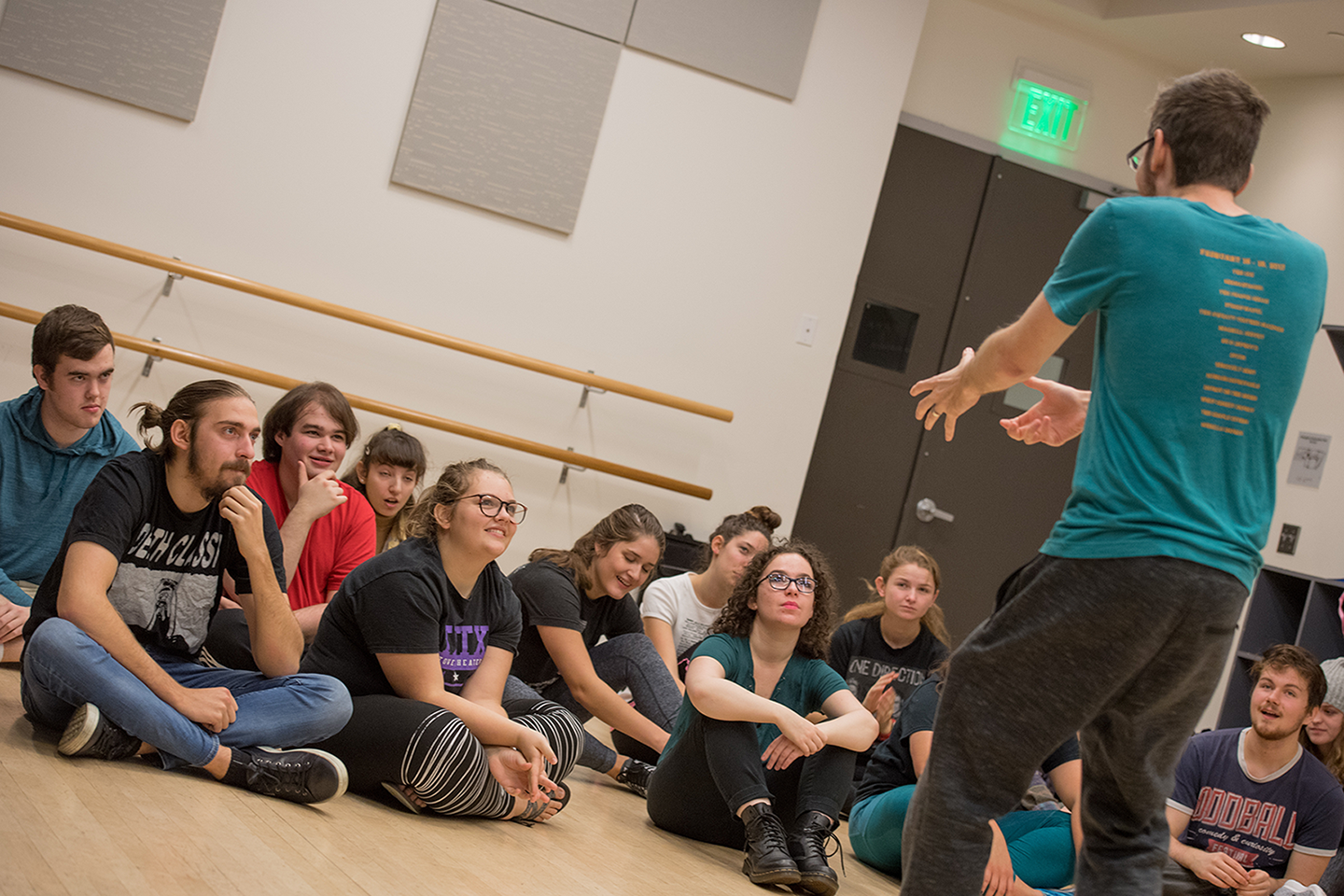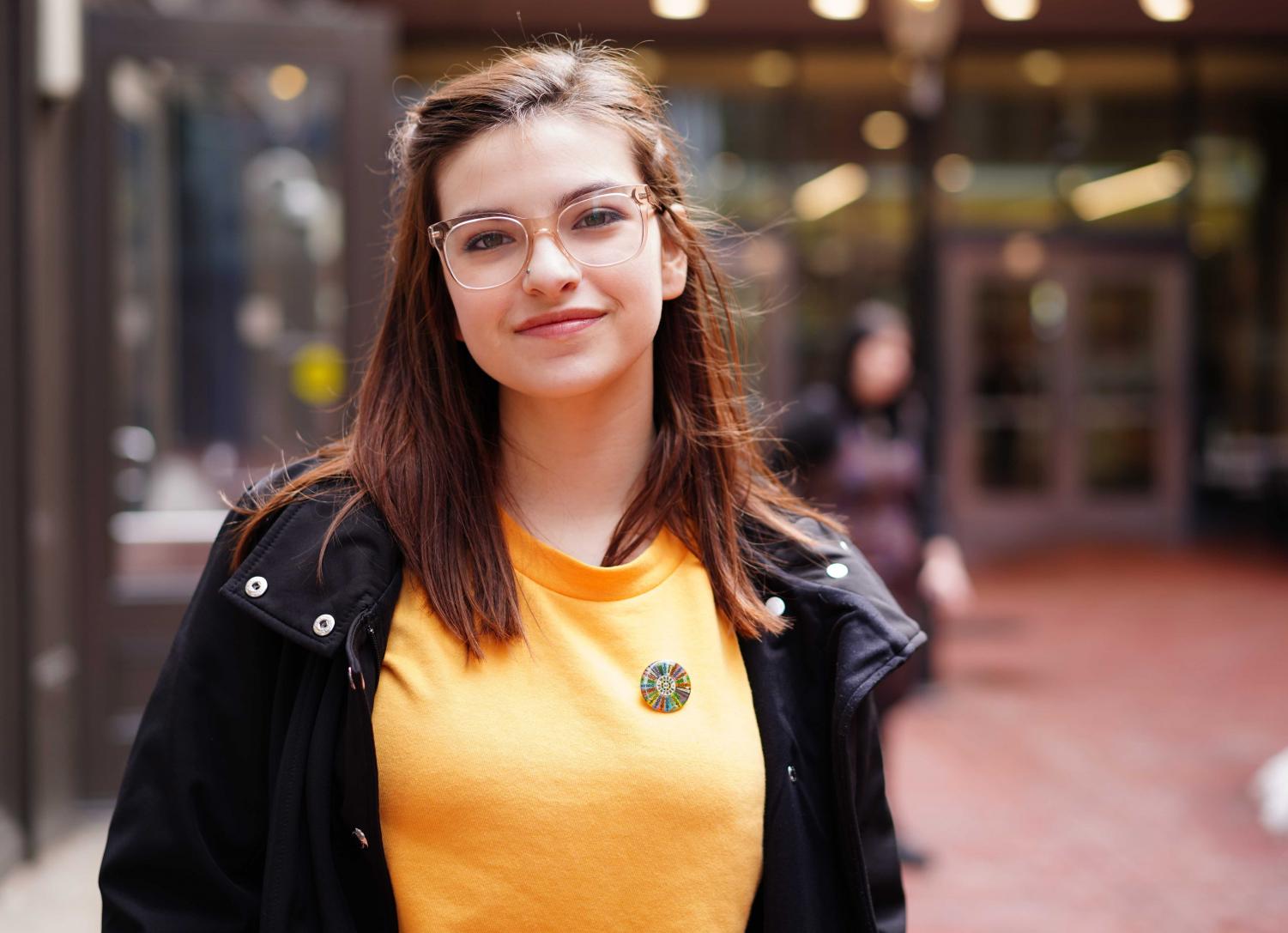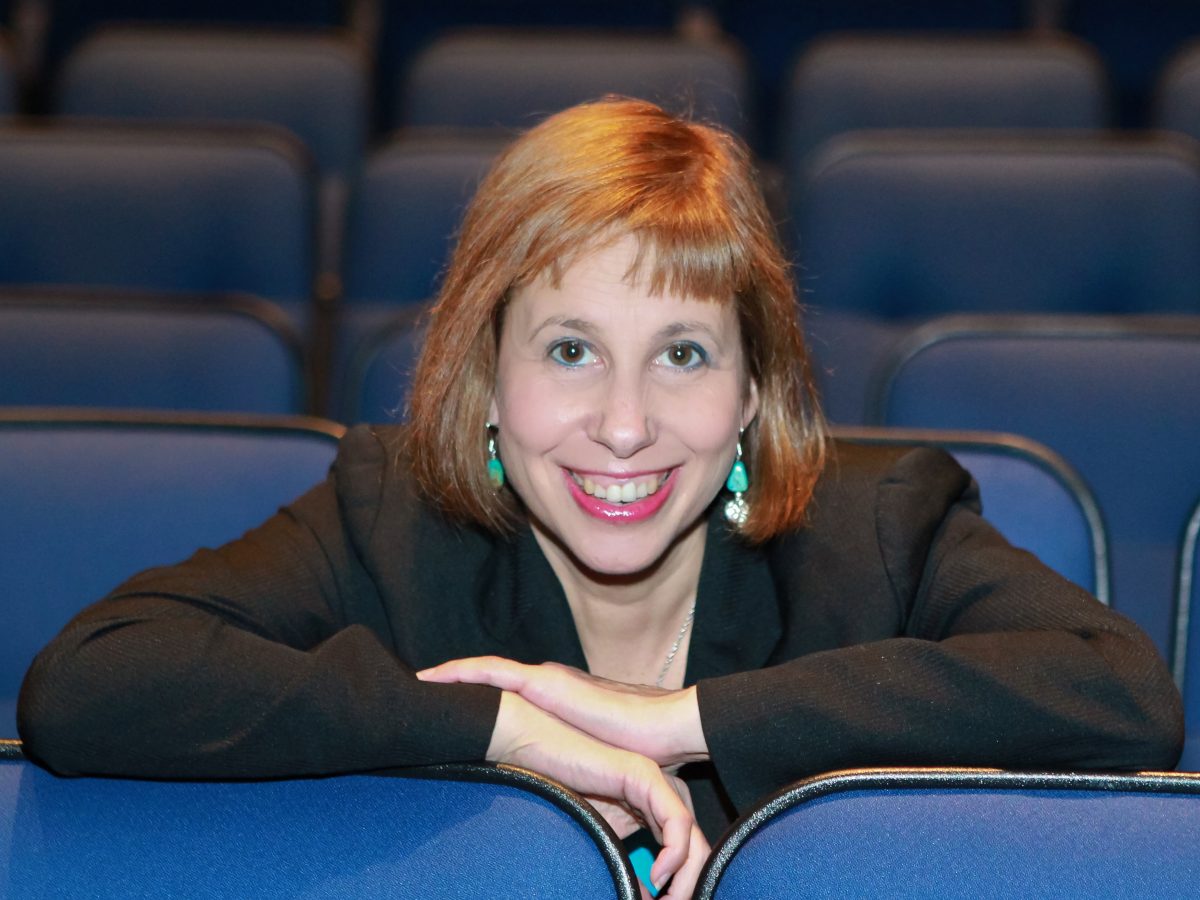Following their 2020 graduation, Emerson’s first comedic arts class is finding new ways to do what they love in the midst of the pandemic—from hosting podcasts to writing self-help books.
The major, conceived by Director and Founder for the Center of Comedic Arts Martie Cook in 2012, welcomed its first class in 2016. For the prospective students who saw the new, first-of-its-kind major, it was a unique offering that combined the writing and performance elements of comedy.
“I actually found out about Emerson’s comedic arts program through a clickbait listicle that was like, ‘Fifteen things you can actually study in college,’” Noah Bender ’20 said. “It was up there with horse maintenance, diving, wine culture and [then] comedy. It stuck out to me.”
When it was first instituted, incoming students offered their input on how to improve the new major’s classes and curriculum.
“It was really exciting because we actually had a hand in creating that major ourselves,” Hannah Cairo ‘20 said. “We went through freshman year, and we were taking theory classes and history classes, and we said ‘Hey, I think that freshmen should take improv first semester.’ We were the reason that they started doing that with classes after, so it was a really cool thing to kind of help shape our major while also learning from it.”

A comedic arts class.
Bender currently lives in San Francisco, California and works as a DoorDash driver. He stays involved in comedy by producing and co-hosting “Two Dummies,” a podcast he started as a WECB radio show with Devin Ruskin ’20 in the spring of 2019.
“The podcast is my safe way of practicing hosting, storytelling, producing, improvising and booking guests,” Bender said. “It started as a comedy advice show answering old column questions from 20 years ago, but we got bored with it. So now we’re a comedy interview show, and we talk about the dumbest moment of our week. It’s been a totally liberating thing to be able to better laugh at myself.”
While at Emerson, Bender spent a semester at the college’s Los Angeles campus and interned at Mad Chance Productions and the Conan late-night talk show. Putting his performance chops to use, he is currently in the process of narrating a self-help book titled “Remember More: 30 Essential Strategies For Unlimited Memory Power, Increase In Brain Health And Improving Concentration.”
Spencer Kash ’20 said he felt that being part of the first comedic arts cohort put students in a difficult position at times. Kash said he occasionally felt like he wasn’t getting his money’s worth as the department tried to establish and better the nascent major.
“Something that’s very difficult for the major is how broad of a spectrum it tries to cover, because comedic arts attracts people that [want] to be TV writers, producers on a TV show, and people that want to be theater actors or someone who wants to act in television or improv, and those are drastically different types of training,” Kash said. “There’s so much that they try to accomplish and cover that for the first year, it was incredibly difficult for them to pull off.”
Kash said despite the initial hiccups with the comedic arts program, he feels prepared for a career in comedy.
“A lot of the Emerson productions I’ve been on, they have been more professional than the ones that I’m trying to find professionally,” Kash said.
In January, Kash moved to Los Angeles, where he’s been applying for jobs in writing and production. He has worked on-and-off as a COVID Production Assistant for the CBS game show, “The Chase,” where he helps enforce and accommodate COVID restrictions and precautions on set. During his free time, he works on an independent romantic coming-of-age feature film that he co-wrote with Joe Scardilli ‘20, about the lives of four college students who move into their old apartment.
Some comedic arts graduates got lucky, finding careers in their desired field even while the pandemic radically disrupted the industry.
After completing a job as a sound engineer for the musical “Next to Normal” at the Lake Worth Playhouse in Lake Worth, Florida in March and April, Cairo was given a contract to run their youth outreach showcase beginning this month. In this role, Cairo will teach songs to kids in underserved schools, who can come to the theater for a rehearsal and put on a show for parents and the community.

Cairo said the comedic arts program was critical to her early success, teaching her how to be herself in whatever job necessary, even while working as a waitress at Burt & Max’s restaurant in her hometown of Delray Beach, Florida.
“It taught me—not to be punny but also to be punny—improvise,” Cairo said. “Your personality is the thing that’s going to make you stand out the most and that should be the first thing you put out [there].”
Now that the major has better footing, a long-form improv class, a physical comedy class, and a class in solo performance were recently added to the curriculum, Cook said.
“They really had a desire to have an acting class that was more geared towards comedic arts. This is the first year we’re teaching that class, and it’s going really well,” Cook said. “We’ve made that a permanent offering so that comedy students will take not just acting, but acting geared towards comedy. And we’ve added some performance classes, just trying out to see how they like them.”

Center for Comedic Arts Director and Founder Martie Cook.
As the major grows past its infancy, some incoming students are more experienced coming into the program than initial applicants were, often participating in comedy clubs, or doing standup, TikTok, and Youtube, Cook said. Many incoming comedy majors arrive at Emerson with resumes and portfolios already rife with independent projects.
In terms of the major’s growth, Cook said the administration wants to keep the program tight-knit, accepting only around 24 students a year. Cook said the main quality the department looks for in applicants is “seeds of comedic talent.”
“We don’t look for people to come into the program perfectly polished, but we also don’t look for people who don’t have an ounce of fun in them,” Cook said. “We can grow comedic talent, but we can’t take somebody who doesn’t have a funny bone in their body and make them talented in comedy.”